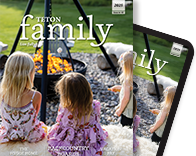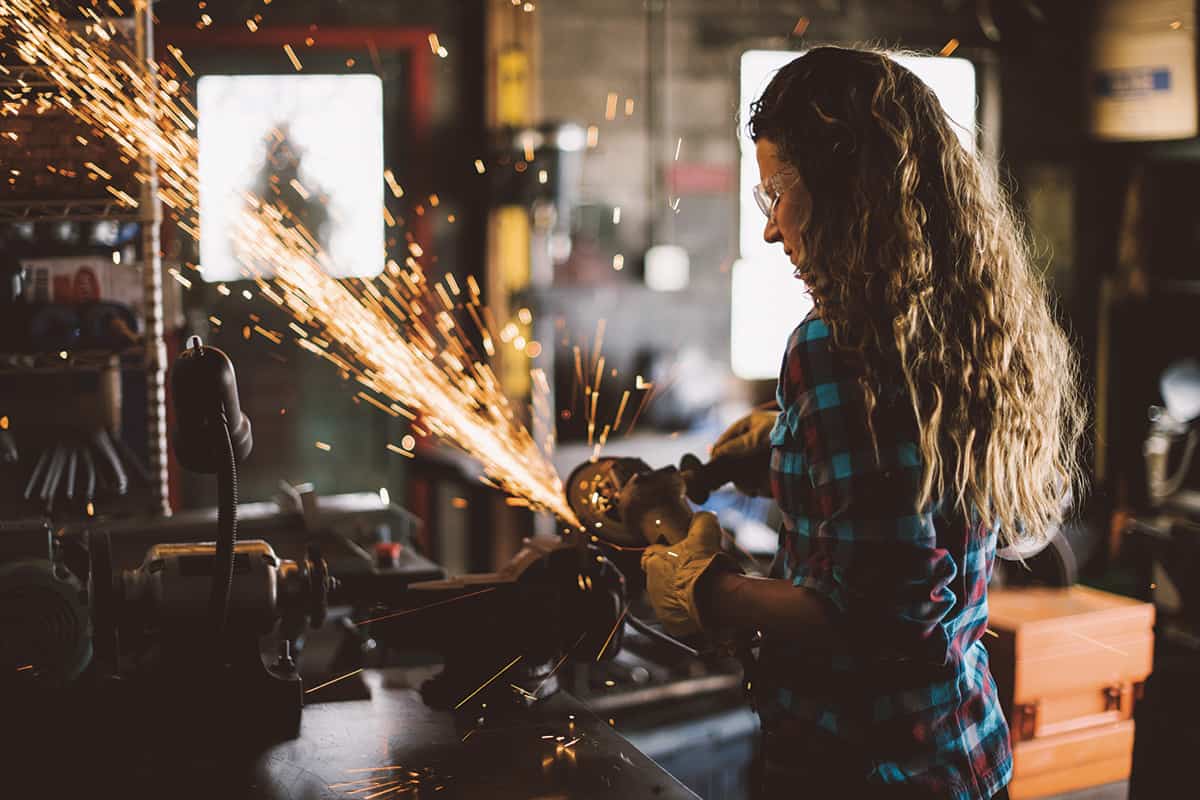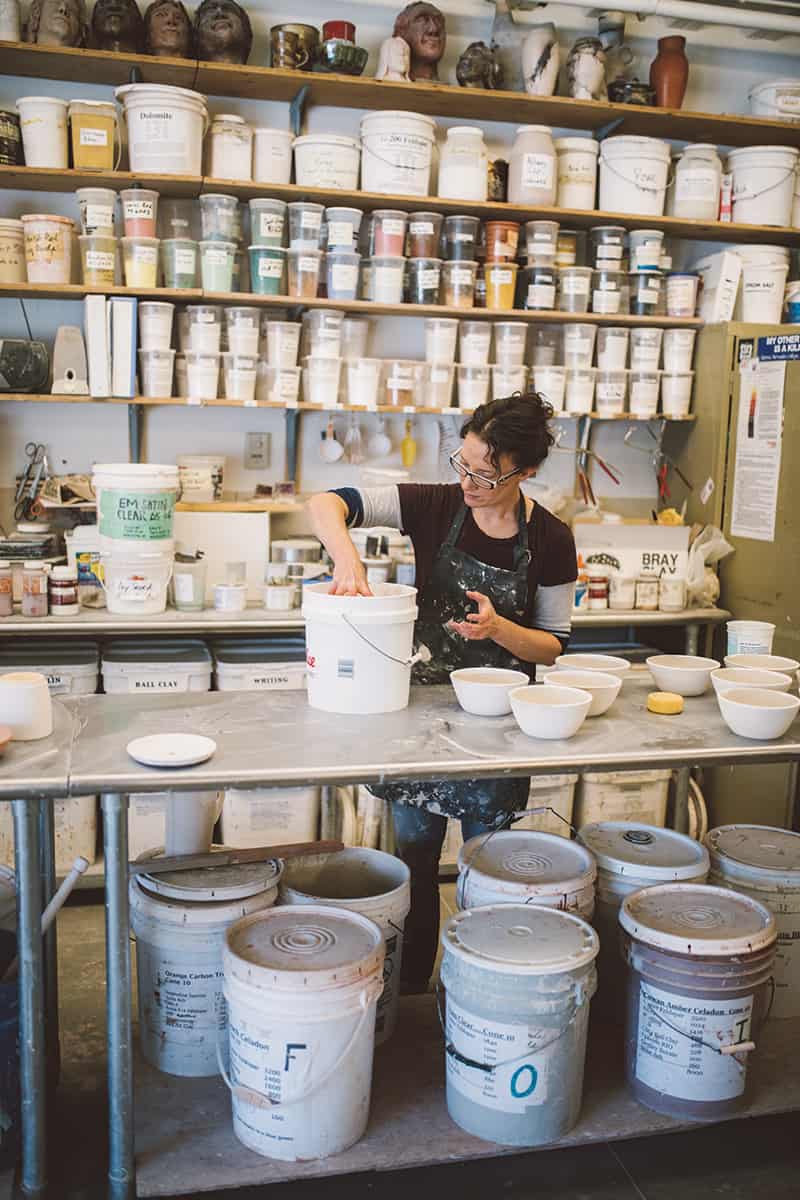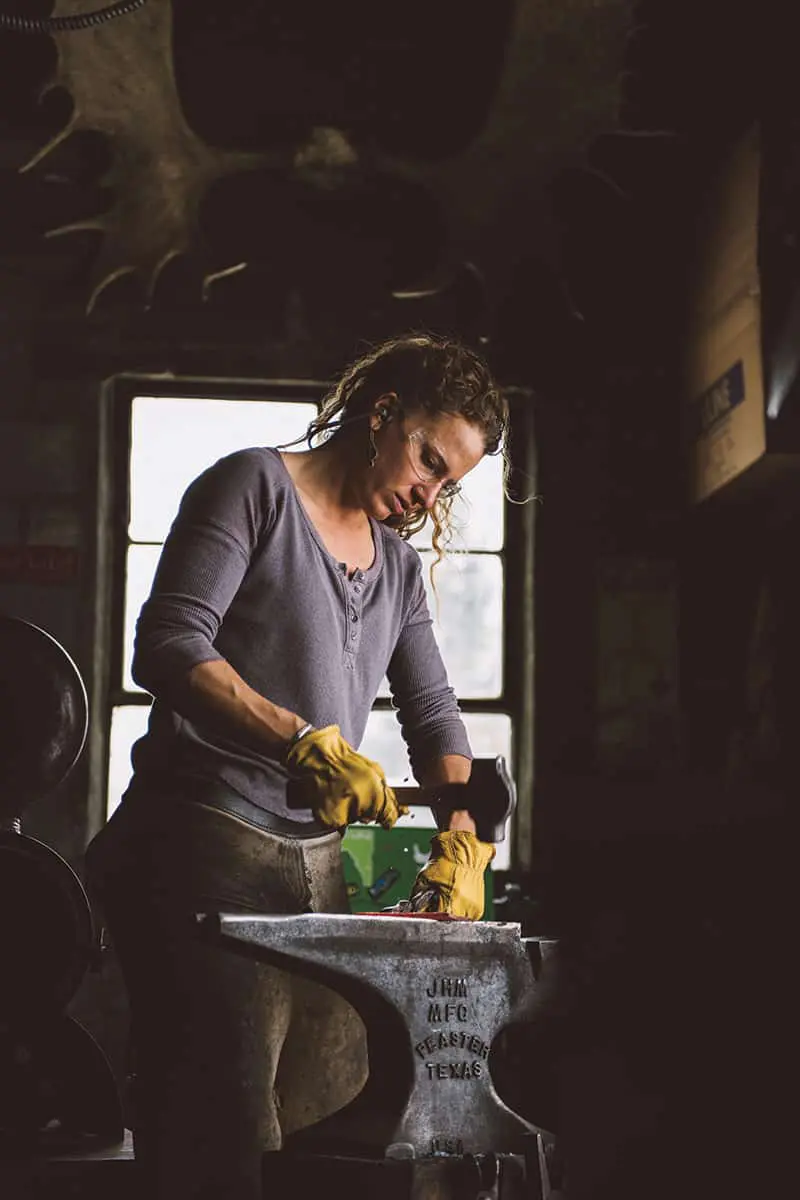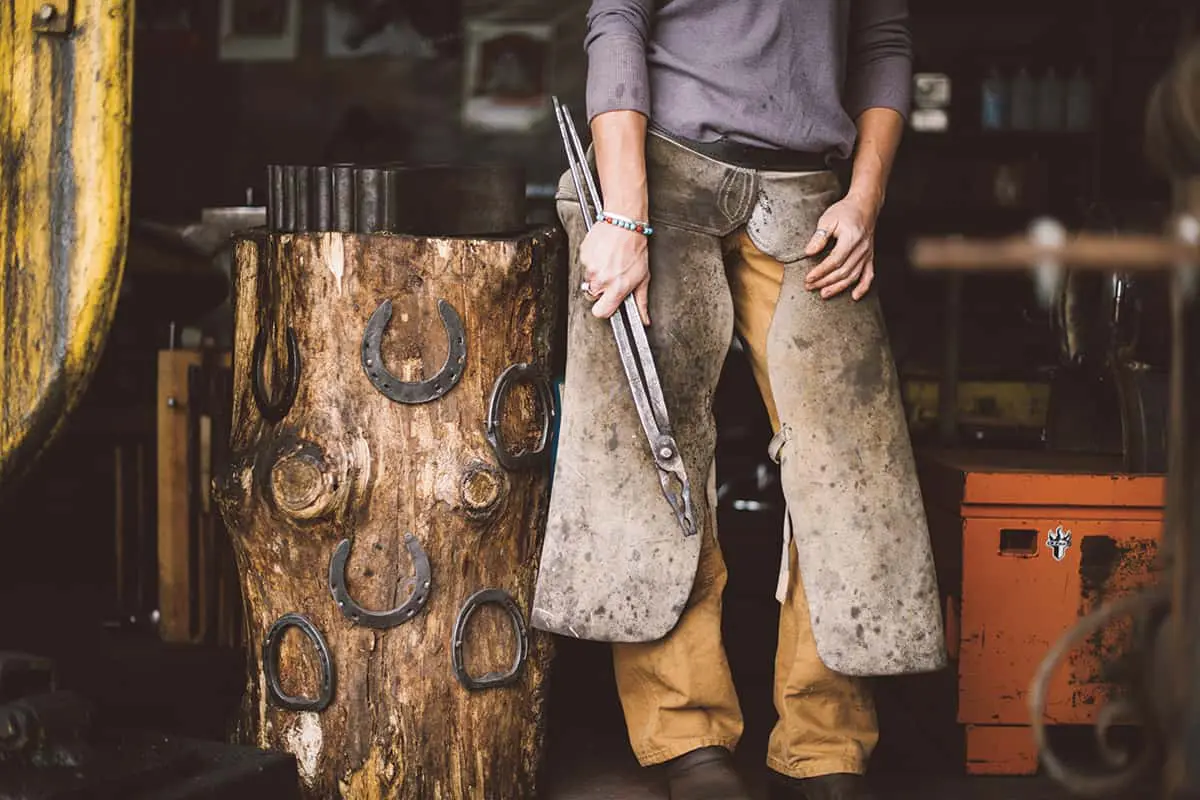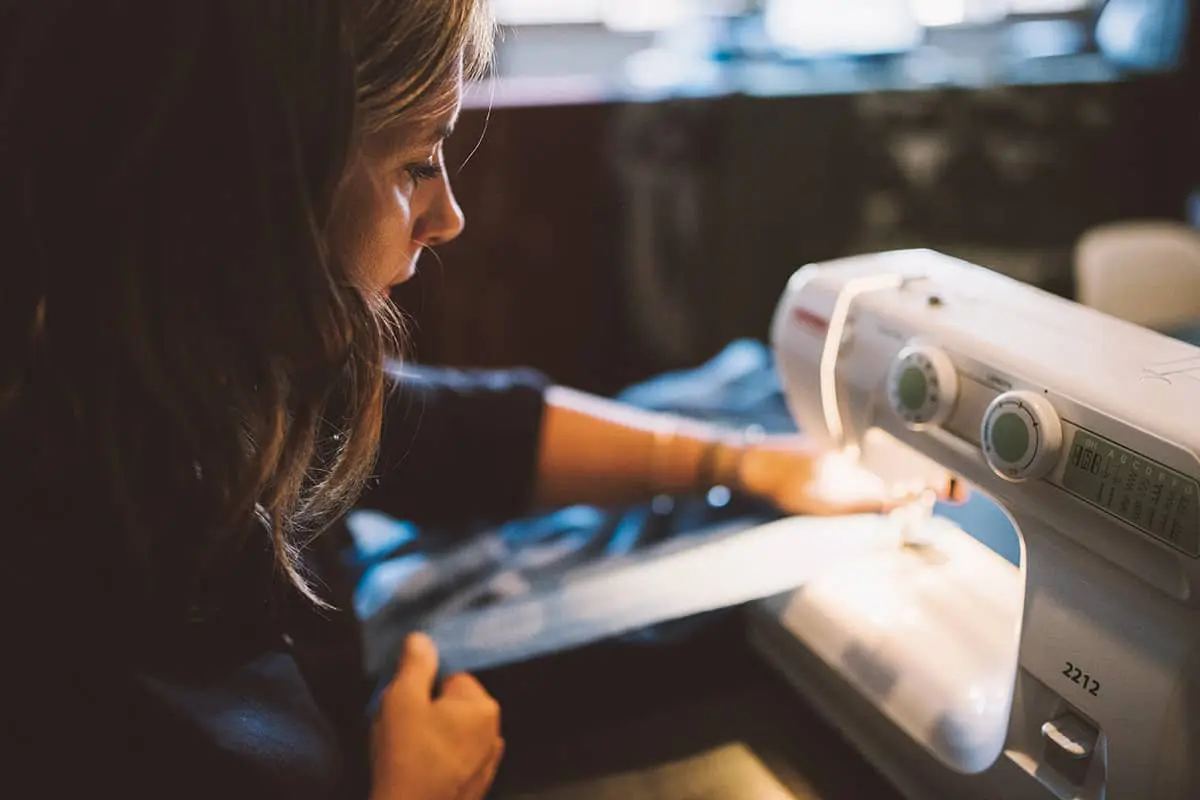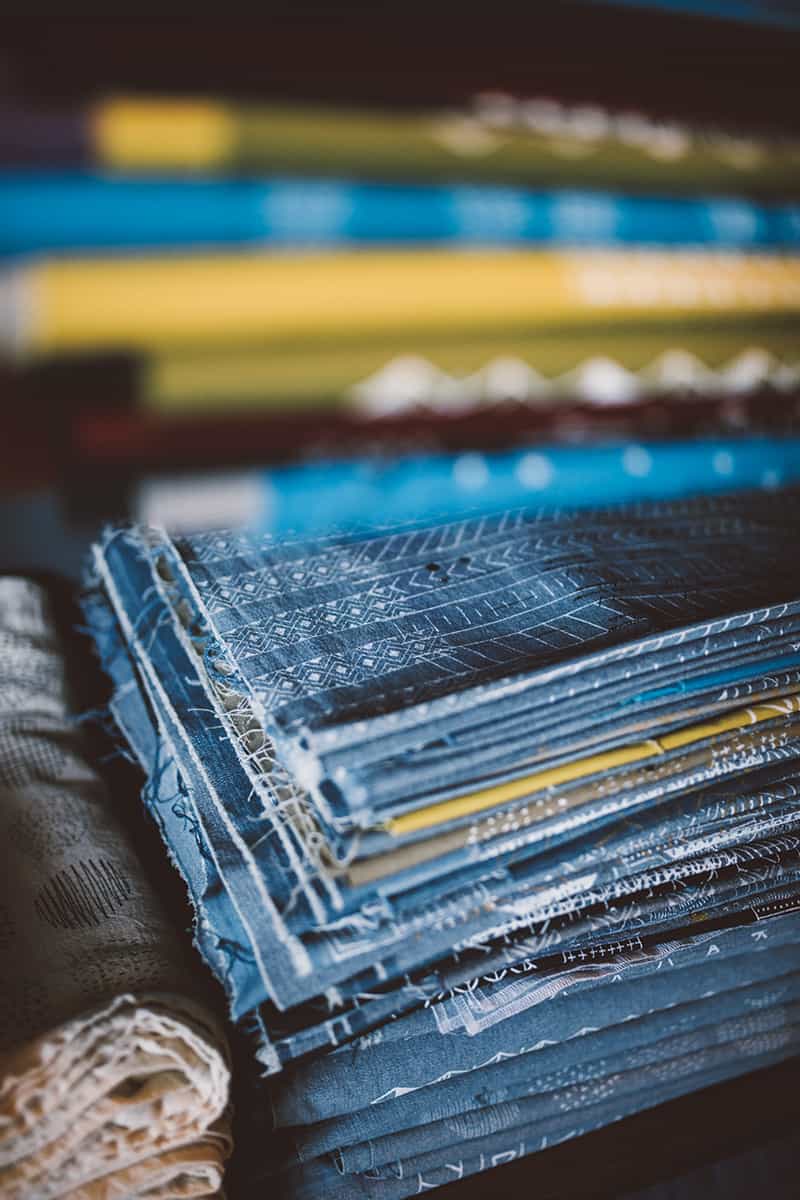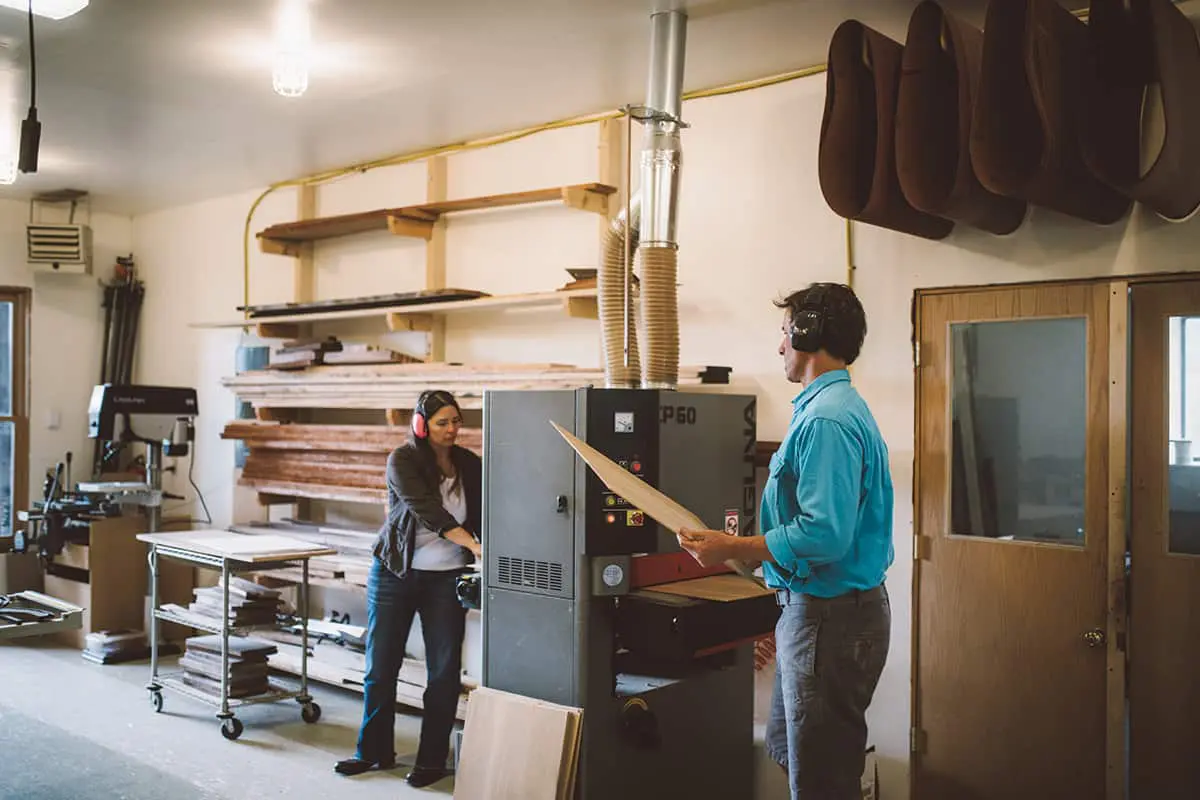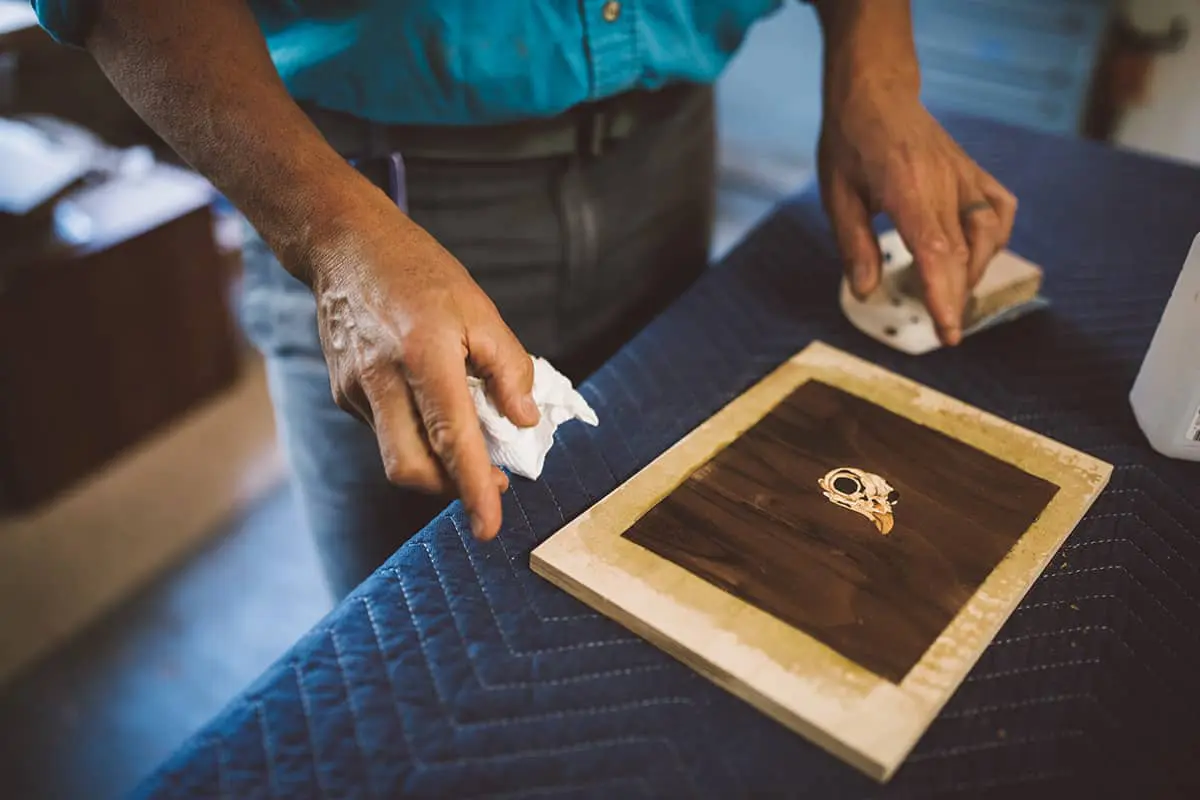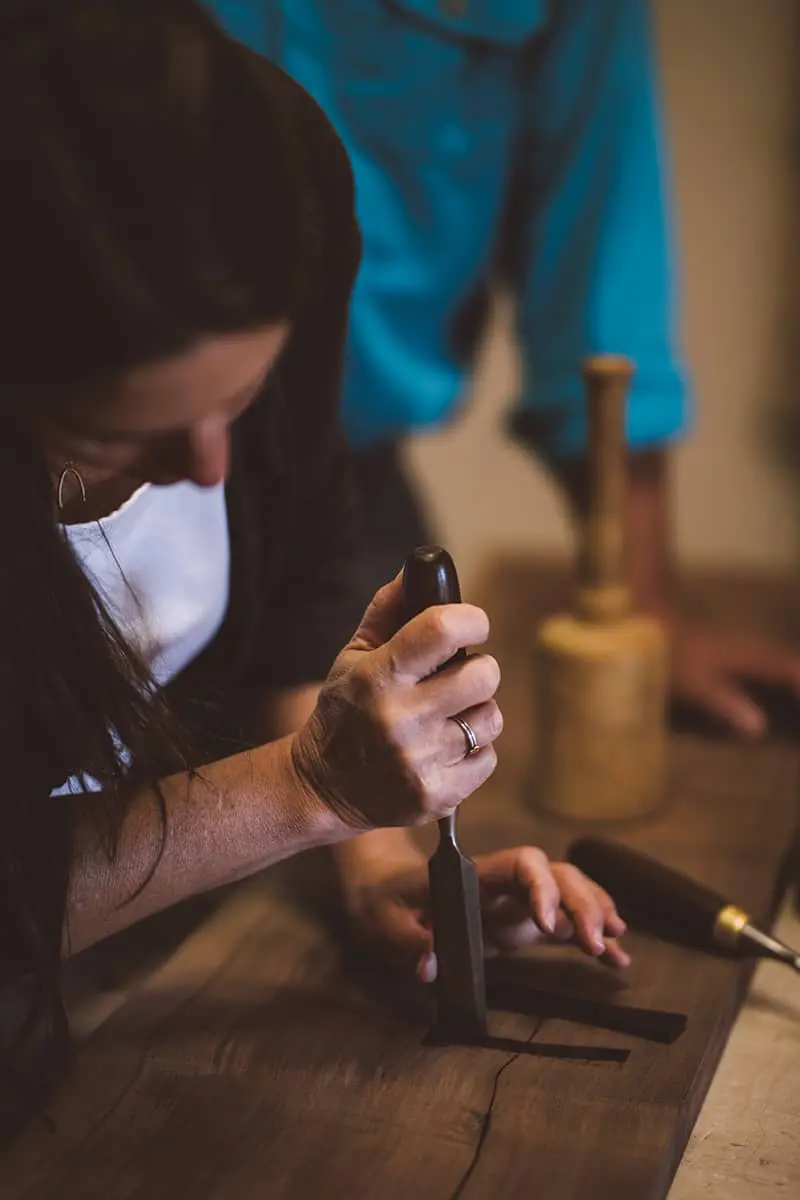By Christina Shepherd McGuire // Photography by Camrin Dengel
—
Just the other day I was talking to my son’s third-grade teacher about spelling. I was wondering when they were going to do the typical “learn word, study flash card, and regurgitate material” spelling tests that I became accustomed to as a kid. Mrs. Madsen explained to me that the best way to learn spelling was by tackling it authentically. Now, I know what authentic means (and also how to spell it), but in this context, I was a little unsure. She explained that teaching spelling in conjunction with writing—where kids edit their own work and adopt spelling principles by applying them to the task at hand—is an authentic way to learn, problem solve, and develop a life skill.
Okay, I get it. It’s about putting purpose into everything we do. Not just because we need to spit out a bunch of words on paper. Spelled correctly.
This fall, I was on a mission to seek out those who make an authentic, purposeful living—individuals who took a hobby or stumbled upon a trade and made it their craft. What I found was an interesting array of people who pepper our community with artisan goods, supporting both families and lifestyles. Whether you’re a farmer, a woodworker, a potter, or a painter, living authentically seems to be in our mountain blood. And, just like creating prose with pen and paper (spelled correctly, or not), this is how we get it done …
We Solve Problems
Sam and Jenny Dowd, of Dowd House Studios, have an uncontained curiosity for “stuff.”
“We are such makers,” says Jenny. “My dad built things and my mom sewed. [At a young age], I learned from my parents that you just make stuff.” While the couple defaults to clay as their medium, Jenny explains that they are constantly learning new tactics by working with all types of materials. “I’ll try something in metal,” she says. “And then I’ll get frustrated and try it in paper or clay.”
As the manager of the ceramics and multipurpose room at the Center for the Arts in Jackson, Sam also knows a thing or two about working with different media. He has more than dabbled in everything from sculpting to pottery, and from welding to mold making.
It’s the couple’s multidimensional skills, and their complementary MFAs, that allow them both to approach their careers as utilitarian potters with a problem-solving attitude.
It started in 2008, when Jenny, who was teaching for the Art Association of Jackson Hole at the time, was approached by one of her students to make water pitchers for the Four Seasons’ guest rooms. At the same time, The Wort Hotel approached Sam for a similar gig. Together, they carefully crafted hundreds of pitchers with handles that would bear the weight of both water and pitcher, while also allowing them to pour correctly. Jenny and Sam got good. Real good.
Today, Sam’s “parachute career” in art admin and his biannual Teton MudPot Sale have allowed the couple to continue solving problems for others with their craft.
“We do this all very organically,” says Sam. “Wherever the rabbit hole goes, we follow it. And there are going to be all sorts of U-turns.”
Most recently, Jenny’s pottery can be found in area restaurants, for which she creates pieces that jibe with chef requests for certain dishes. She enjoys being part of the locavore movement—local food being served on local art—and acknowledges that chefs were the missing link to her success. Sam’s role at the Art Association and his creation of Jackson’s staple pottery sale also solves community problems, as he nurtures budding artists and enables them—just like he has done for himself—to earn an income from their craft.
We Find Our Voice
Growing up as a homeschooler in Alaska taught Alex Paliwoda, The Backcountry Blacksmith, about the specialness of place. This self-professed mountain goat, as the touchmark logo on her pieces suggests, fell into the art of blacksmithing while searching for a medium that represented the ruggedness of nature. A welder since age 14, Paliwoda believes metal mimics the wilderness because “steel is really hard, but it’s also incredibly forgiving.”
After graduating from Montana State University Horseshoeing School, Paliwoda hauled her blacksmithing setup—which then fit into the back of her pickup—into the Wrangell-St. Elias National Park and Preserve (her new home), and completely immersed herself in both nature’s wildness and her craft.
With a burning need for people to hear her through her work, she decided to take her hobby more seriously. So she packed up shop, moved to Colorado, and landed an apprenticeship in Salida. “I spent hours making piles of junk until I got good,” she explains. “Production work just makes you better.“ Her big break came when she submitted a horseshoe trivet to UncommonGoods and they bought it. That year, she made 4,000 trivets.
Eight years later, you can find Paliwoda in her shop in Driggs, surrounded by impressive equipment—a propane forge, two anvils, a tumbler, and a power hammer. She now has three employees, including a welder, a finisher, and a packer. Together, they continue to make trivets for UncommonGoods, as well as Paliwoda’s other signature pieces like her Copper River Knife (a traditional Ulu Eskimo knife), her Higher Ground Belt Buckle, cheese knives, leaf hooks, platters, and other custom items for both home and business. (Check out the porch railing at the Royal Wolf in Driggs the next time you drop in for a burger.) Last year, the small shop produced over 10,000 items that shipped worldwide. “When people from Australia, to Texas, to England actually liked my story, I was blown out of the water,” she says, beaming.
Every piece Paliwoda makes reveals her commitment to nature and the environment. From her eco-friendly finishing practices, to her recycled packaging, you know you’re getting a little slice of something created by someone making a difference in this world. “It’s exhilarating,” says the once-shy kid from the Alaskan bush. “I’m proof that someone can pursue a dream if they really try and can make what they love to do their job.”
We Chase a Lifestyle
When the graphic design industry tanked in 2013, textile designer Lisa Walker, of Lisa Walker Handmade, bought herself a sewing machine, taught herself how to sew, and turned her graphic design talents into a home-based business. A Bozeman, Montana, native who moved to New Jersey at age 9, Walker’s childhood was a melding of New York City suburbia and mountain culture. But she was destined to come back to the West someday. So, after a career stint at Hallmark in Kansas City, she figured out a way to be in Jackson, make money, and travel with her kids, Niko, age 8, and Kai, age 6.
All of Walker’s hand-drawn designs—turned fabric masterpieces—are reflections of something she’s seen in her travels. Every one of her intricate screen-printed garments and accessories are designed, cut, and hand sewn by her (no Butterick pattern needed). Each year, Walker turns hundreds of yards of hand-dyed fabric into coveted wraps and scarves; signature tea towels for Persephone Bakery, Picnic, and Aspens Market; and iconic wraps, embellished in mountainscapes, ravens, and buffalo.
Walker says she’s living her own version of the “Jackson authentic lifestyle.”
“I like to be outside, but I’m not this extreme athlete,” she says. “I make items for our culture—they are warm, breathable, and can withstand the elements. You can hike up Snow King [in my creations], and then come down and go out to dinner.”
At the end of the day, the great room in her downtown Jackson loft represents the perfect coexistence of work and life. It’s a gathering area for her family, it’s a gallery for her wears, and it’s a workshop that feeds her soul. “I like that my kids see me work hard,“ she says. “If you work hard at what you love, it will bring you your lifestyle. I want them to go out into the world knowing that.”
We Are the Real Deal
Jim and Sue Berkenfield, of Packsaddle Road Woodworks in Tetonia, never make any item of furniture twice. “The most stimulating part of the project is coming up with a design,” says Jim. “Once the creative aspect is over, it becomes more tedious, and then I don’t want to make [the piece] ever again.”
It’s a sentiment many artisans express, and something many clients desire, as they know they’re getting a one-of-a-kind piece. And that’s exactly what the Berkenfields deliver, with heirloom-quality pieces made from a mix of hardwoods like walnut, cherry, and maple, and crafted using traditional joinery techniques.
You could say that the Berkenfields somewhat tripped into their profession. While living in San Francisco, Sue, a New England native with an affinity for 18th century furniture, began dabbling with wood. Simultaneously, Jim’s work with a dotcom startup dried up, and he took a job, cold turkey, with a local cabinet shop. The trade came quickly and easily to Jim, as he wrapped his head around built-ins and kitchen remodels. But their serendipitous “trip” became a path to a full-time gig when Sue applied for and was accepted into a craftsmanship program at the North Bennet Street School in Boston.
Furniture making is a series of sequential processes that mimic the way the Berkenfields have approached life. In 2004, the couple moved back to the Tetons, eventually settling in Tetonia; they rented a shop space in Victor and became their own bosses. “But it wasn’t all rainbows and lollipops,” says Sue, alluding to the economic crash in 2008 that coincided with the timing of their growing family. The couple needed to diversify to manage the cash flow (a concept not foreign to many mountain-town residents), so they bought the drive-up coffee shop in Driggs known as “Coffee on the Fly.”
Today, the couple has moved on from being baristas. They’ve built their own shop out of a Quonset hut on their property, and they see their custom cutting-board business as a way support themselves in between the income windfalls.
“You get a [furniture] down payment and then it’s time to buy tires and take the kids to the dentist,” says Sue. But it’s all in an effort to sustain a type of freedom—one that many mountainites carve for themselves, while others look on in awe. “It’s about how you structure your own time,” says Jim. “As long as we’re getting product out the door, we have more quality time to spend with family.”
Sue elaborates on the feeling of purpose: “Any town that I want to call home should have an independent bookstore, an independently owned movie theater, a coffee shop, and a bevy of craftspeople that you are proud to say make up your community.”
To be able to methodically carve out a niche, and to also pull yourself up by the bootstraps when you need to … well, to me, that’s the real deal. And it represents the overarching authenticity that folks in nontraditional communities like ours aim for.
Holiday Shopping Guide
—
Dowd House Studios • dowdhousestudios.com
Old Wilson Schoolhouse Holiday Gift Show, December, Wilson
Cocktails & Creatives at The Rose, December, Jackson
Penny Lane Cooperative, Jackson
Market (in Vertical Harvest), Jackson
Workshop, Jackson
Made, Jackson
The Wort Mercantile, Jackson
Healthy Being Juicery, Jackson
Raven Lunatics Art Gallery, Alpine
The Backcountry Blacksmith • backcountryblacksmith.com
Guchiebirds, Driggs
Driggs Art Tour, December, Driggs
UncommonGoods (uncommongoods.com)
Lisa Walker Handmade • lisawalkerhandmade.com
Art Association of Jackson Hole Holiday Bazaar, December, Jackson
Workshop, Jackson
Picnic, Jackson
Persephone, Jackson
Aspens Market, Wilson
Packsaddle Road Woodworks
Online at packsaddleroad.net
